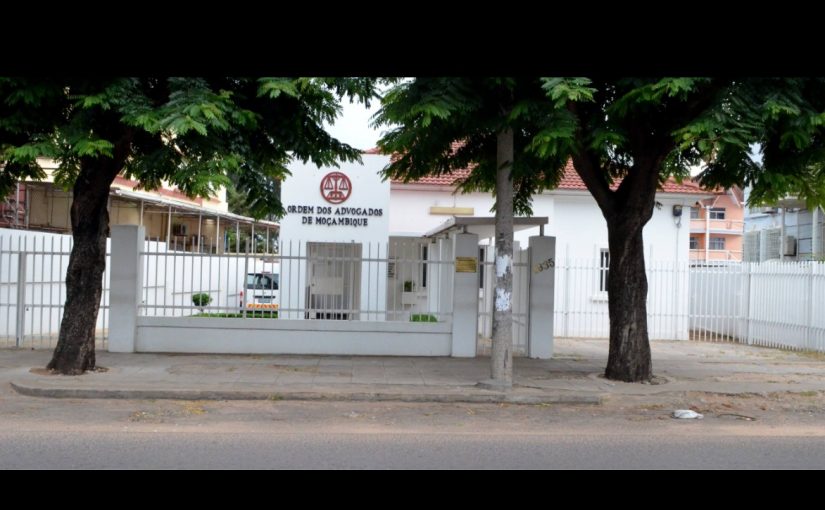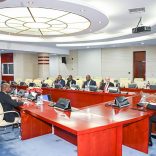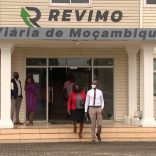Mozambique Elections: Demonstrations spread to Marracuene - AIM
CIP Mozambique Elections: OAM demands publication of the polling stations editais, says CC must tell CNE to clarify crimes

File photo: Ordem dos Advogados de Moçambique /Facebook
- Bar Association accuses CNE of rushing ahead so as not to investigate election crimes
The National Elections Commission has 15 days to announce the election results, which expired on 24 October. The CNE claimed it would not have time and conditions to carry out investigations into the discrepancies between the number of voters for reach of the elections (for President, Parliament, and the Provincial Assemblies).
The Mozambican Bar Association (OAM) rejects this and notes that “the law allows the extension of procedural deadlines, if it is necessary to undertake essential measures to clean up or solve the root of the question (irregularities), as is the case”.
The OAM says “it is very serious when a public body with as much responsibility as the National Elections Commission chooses to ignore serious, fundamental and determinant problems, such as those concerning ascertaining the will expressed by the people – through the VOTE – by resorting to an alleged inflexibility of the legal deadlines.” It cannot leave such an important matter to be clarified and corrected, which even the CNE itself recognizes and which cannot be immediately corrected.”
As for electoral crimes, some of which were already before the district and city law courts, the OAM says the CNE “cannot and should not allege, shamelessly, that it became aware of them through the mass media, since it is its responsibility to investigate all the irregularities that occurred during the elections”.
The deadline for announcing the results cannot, the OAM states, justify hiding the truth about the elections. Furthermore, it adds, “the CNE was not, and is not, legally obliged to publish results, even when they are not credible. No interest should prevail which is not the electoral truth, that is, the supreme will of the voters”, it concluded. (The OAM cites Article 92, paragraph 3, of Law no. 14/2011, of 10 August, which establishes the norms to defend the rights and interests of individuals and revokes the Overseas Administrative Reform and Decree-Law no. 23229, of 15 November 1933.)
The OAM argues that in the event of manifest irregularities, which compromise electoral justice and transparency, the CNE could “not declare the results”,. It would then be up to the interested parties to appeal against this decision to the Constitutional Council.
Thus the OAM concluded “there were other legally possible, more transparent and safer paths. We cannot close our eyes when injustice is clear and compromises social peace. Justice and peace are fundamental for the success of a State. Of this there is no doubt.”
- OAM demands publication of the polling stations editais, says CC must tell CNE to clarify crimes
The OAM says it believes the only path open to the Constitutional Council (CC) is:
- To return the minutes and results sheets (editais) of the National Centralisation and General Count to the National Elections Commission, instructing it to investigate and clarify, within a particular period, the deep-seated problems that the CNE itself recognised exist, particularly numerical discrepancies;
- Once it has received from the CNE the report on the investigation, the CC should begin the overall analysis and discussion of the process, in a public meeting which should include the presence of at least the agents of the presidential candidates and of the political parties, in addition to the mass media and the national and international observers;
- At the same time the CC should order the publication of all the results sheets (editais) produced at all the polling stations nationally;
- If it is not possible to do the above, order a recount of the votes nationally and post the respective editais.
If this does not happen, the OAM warns that the CC, CNE and STAE should bear full responsibility for any social instability
- ‘Political interests control electoral justice,’ say lawyers
In the same statement, the OAM says that the problem with the electoral bodies stems from the fact that the electoral justice system is being controlled by political interests, which is manifested in the composition of the National Electoral Commission and the distortion of everything that is characteristic of a plural democracy and the rule of law.
The Order attributes the waves of protests and demonstrations, which are ‘repressed in a profoundly violent manner by the police’, to the lack of transparency of the electoral management bodies and their support bodies – election commission and the Technical Secretariat for Electoral Administration – at all levels.
‘We have to accept that times have changed. All past elections ended in armed conflict. Today the paradigm is different: it is the general population that is demanding transparency and credibility in the election results and it is the police that are violently repressing, even violating constitutionally enshrined fundamental rights, especially the right to life. These elections have gone beyond ethnic groups and regionalism, and the national interest is at stake’.
The OAM goes on to say that ‘a bloodbath in our society cannot be allowed, and the signs point in that direction and towards that end. If we allow this, we will be failing as a state, as a democracy, as a people, just to accommodate unknown interests.’
- You may read the full statement of the Mozambican Bar Association, in Portuguese, HERE.












Leave a Reply
Be the First to Comment!
You must be logged in to post a comment.
You must be logged in to post a comment.